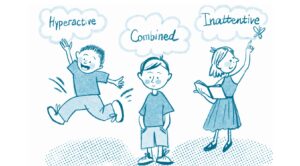The modern Indian workplace has transformed dramatically over the past decade, bringing unprecedented challenges to employee mental health and organizational success. In my extensive experience providing work stress counseling to professionals across various sectors, I’ve witnessed firsthand how the intersection of technological advancement, global competition, and cultural expectations creates unique pressures for our workforce. Understanding and addressing these challenges through professional support has become crucial for both individual wellbeing and organizational success.
Table of Contents
ToggleUnderstanding the Impact of Work Stress on Indian Professionals
The corporate landscape in India presents a complex tapestry of stressors that differ significantly from global counterparts. Beyond the universal challenges of deadlines and performance targets, Indian professionals navigate a unique set of cultural and social expectations that can intensify workplace stress. Recent studies indicate that nearly 80% of Indian professionals report experiencing significant work-related stress, with implications extending far beyond the office environment.
The Unique Challenges of Indian Corporate Culture
The distinctive nature of Indian workplace dynamics creates multifaceted stress triggers that require culturally sensitive approaches to address effectively. Through my clinical practice, I’ve identified several key factors that consistently emerge as primary stressors in our corporate environment:
- Traditional hierarchical structures often clash with modern management practices, creating confusion and anxiety about appropriate workplace behavior.
One of my clients, Raj (name changed), a 32-year-old IT professional, struggled with this exact challenge. His international company promoted flat hierarchies, but his local team maintained traditional power distances, creating significant stress around decision-making and communication.
- The concept of “work family” in Indian organizations, while fostering belonging, can blur professional boundaries and create unhealthy expectations of availability.
Evening and weekend work communications have become normalized, leading to chronic stress and difficulty disconnecting from work.
Breaking Mental Health Stigma in the Workplace
The stigma surrounding mental health in Indian society presents a significant barrier to seeking professional help. Traditional beliefs often frame mental health challenges as personal weaknesses rather than legitimate health concerns. In my practice, I’ve developed specific approaches to help organizations address these cultural barriers:
- Creating safe spaces for conversations about mental health through structured workshop programs that align with cultural values and organizational goals. These programs emphasize strength and resilience rather than focusing solely on problems and challenges.
- Implementing anonymous support systems that allow employees to seek initial guidance without fear of judgment or professional repercussions.
How Work Stress Counseling Transforms Workplace Productivity
Professional counseling services offer structured support that addresses both immediate stress management needs and long-term emotional resilience. Through evidence-based approaches adapted for the Indian context, we work on developing practical skills that enhance both personal wellbeing and professional effectiveness.
Balancing Family Expectations and Career Demands
The intense pressure to meet both family obligations and career aspirations creates unique challenges for Indian professionals. Many of my clients struggle with guilt about prioritizing work over family time, while simultaneously feeling pressured to advance their careers rapidly. We work together to:
- Develop communication strategies that help maintain harmony between professional and family life
- Create realistic boundaries that respect both cultural values and personal needs
- Build confidence in making decisions that align with individual values while respecting family expectations
Implementing Effective Stress Management Strategies
My approach integrates traditional stress management techniques with culturally appropriate interventions. This includes:
- Mindfulness practices adapted to fit within the Indian workday schedule
- Communication skills that maintain respect for hierarchy while asserting healthy boundaries
- Time management strategies that account for extended family obligations and cultural celebrations
- Cognitive restructuring techniques that address cultural beliefs about success and failure.
Signs Your Team Needs Professional Support
Through extensive work with various organizations, I’ve observed that workplace stress often manifests in subtle ways before becoming a significant problem. Understanding these early warning signs can help organizations take proactive steps toward supporting employee mental health and maintaining workplace productivity.
Key indicators I frequently encounter in struggling teams include:
- Increased interpersonal conflicts that seem disproportionate to the triggering incidents
- A noticeable decline in innovation and creative problem-solving
- Rising absenteeism or frequent use of sick leave
- Decreased engagement in team meetings and collaborative projects
- Higher turnover rates, particularly among high-performing employees
- Changes in communication patterns, such as increased email aggression or withdrawal from informal team interactions
When organizations notice these signs, early intervention through professional support can prevent further deterioration of team dynamics and individual wellbeing.
Building Resilient Teams Through Professional Support
Creating resilient teams requires a systematic approach that addresses both individual and collective needs. In my practice, I’ve developed a comprehensive framework that helps organizations build psychological resilience while maintaining high performance:
- Individual Support: Providing confidential counseling services that allow team members to address personal challenges affecting their work performance.
- Team Development: Facilitating workshops and group sessions that enhance collective emotional intelligence and stress management capabilities.
- Leadership Guidance: Working with team leaders to develop management styles that promote psychological safety while maintaining productivity goals.
Through this integrated approach, I’ve helped numerous teams transform their stress responses and develop stronger collaborative relationships. One technology team I worked with reduced their conflict incidents by 60% over six months while simultaneously improving their project delivery metrics.
Creating a Culture of Psychological Safety at Work
Establishing a mentally healthy workplace requires more than occasional wellness initiatives or crisis intervention. It demands a fundamental shift in organizational culture that prioritizes psychological safety alongside performance metrics. Based on my experience working with various Indian organizations, here’s what successful implementation looks like:
- Leadership Commitment: Senior management must visibly support and participate in mental health initiatives. This includes sharing their own experiences with stress management when appropriate and modeling healthy work-life boundaries.
- Clear Communication Protocols: Establishing explicit guidelines about after-hours communication, response times, and meeting schedules that respect personal time.
- Structured Support Systems: Creating multiple pathways for employees to seek help, including:
- Regular counseling services (both individual and group)
- Peer support networks
- Anonymous helplines
- Mental health resource libraries
- Regular wellness check-ins
- Performance Management Integration: Incorporating wellbeing metrics into performance reviews and team assessments, ensuring that mental health support becomes part of the organizational fabric rather than an optional add-on.
Taking the First Step Towards Workplace Wellness
The journey toward better workplace mental health begins with acknowledging the reality of work-related stress and its impact on both individuals and organizations. As a counseling psychologist, I’ve witnessed remarkable transformations in both personal wellbeing and team dynamics when organizations commit to supporting their employees’ mental health.
Professional counseling provides a structured, confidential space where individuals can:
- Develop personalized stress management strategies
- Learn effective communication techniques
- Build resilience against future challenges
- Navigate complex workplace relationships
- Balance professional growth with personal wellbeing
The investment in employee mental health through professional counseling services yields significant returns in terms of improved workplace productivity, reduced turnover, and enhanced team collaboration.
If you’re experiencing work-related stress or are responsible for team wellness, taking the first step toward professional support can be transformative. Contact me to schedule an initial consultation where we can discuss your specific challenges and develop a tailored approach to enhance both individual wellbeing and organizational success.
Frequently Asked Questions About Work Stress
How do I know if I need work stress counseling?
If you’re experiencing persistent anxiety, sleep difficulties, or finding it hard to maintain work-life boundaries, these are signs that professional support could be beneficial. Early intervention often prevents more serious issues from developing.
What happens in a work stress counseling session?
In our sessions, we begin by understanding your specific workplace challenges and personal goals. Together, we develop practical strategies tailored to your situation while maintaining complete confidentiality. Sessions typically last 70 minutes.
How can work stress counseling improve workplace productivity?
Through counseling, you’ll develop better stress management techniques, improved communication skills, and clearer boundaries. These tools often lead to enhanced focus, better team collaboration, and increased job satisfaction.
Will my employer know if I seek work stress counseling?
Your privacy is my top priority. Unless you specifically request it, all counseling sessions remain strictly confidential. I maintain professional standards that protect your privacy while providing the support you need.
How many sessions of work stress counseling do I need?
The number of sessions varies based on individual needs and goals. Some clients benefit from 3-4 sessions, while others may need longer-term support. We can discuss a personalized plan during your initial consultation.








29 thoughts on “Work Stress Counseling: The Key to Enhanced Employee Wellness and Performance”
Hi there! This blog post could not be written any better!
Looking through this article reminds me of my previous roommate!
He constantly kept preaching about this. I will send this article
to him. Fairly certain he will have a very good read. Thank you for sharing!
It is perfect time to make some plans for the long run and it is time to be happy.
I’ve learn this publish and if I may I desire to counsel you few interesting things or tips.
Perhaps you could write subsequent articles regarding this article.
I wish to learn even more things approximately it!
fantastic issues altogether, you simply won a new reader.
What may you recommend in regards to your publish that you just made some days in the past?
Any sure?
Hey there! Would you mind if I share your blog with my zynga group?
There’s a lot of folks that I think would really enjoy your content.
Please let me know. Thanks
Have you ever thought about publishing an ebook or guest authoring on other websites?
I have a blog centered on the same subjects you discuss and would really like to
have you share some stories/information. I know my visitors would value
your work. If you are even remotely interested, feel free to shoot me an e mail.
whoah this blog is excellent i love reading your posts. Stay up the great
work! You recognize, lots of persons are looking round for
this information, you can aid them greatly.
Hello, after reading this awesome paragraph i am also cheerful to share my know-how here with mates.
Keep this going please, great job!
I feel that is among the so much important information for me.
And i am satisfied reading your article.
However wanna remark on some common things, The site style is great, the articles is
in point of fact excellent : D. Excellent process, cheers
This article is in fact a nice one it helps new the web
viewers, who are wishing for blogging.
I was suggested this blog by my cousin. I am not sure whether this post is written by him as nobody else know such detailed about my trouble.
You are incredible! Thanks!
Hey there, You’ve done a great job. I’ll definitely
digg it and personally recommend to my friends.
I’m sure they will be benefited from this website.
Hi there! Someone in my Myspace group shared this website with us so I came to look it over.
I’m definitely enjoying the information. I’m bookmarking and will be tweeting this
to my followers! Great blog and wonderful design.
I have learn some excellent stuff here. Definitely worth bookmarking for
revisiting. I surprise how a lot attempt you set to make
such a wonderful informative web site.
bookmarked!!, I like your site!
This web site definitely has all of the information and facts I wanted concerning this subject and didn’t know who to ask.
Oh my goodness! Incredible article dude! Thank you,
However I am going through problems with your RSS.
I don’t understand the reason why I can’t subscribe to it.
Is there anybody getting similar RSS issues? Anyone who knows the answer will you kindly respond?
Thanx!!
First of all I want to say terrific blog! I had a quick question that I’d like to ask if you do not mind. I was curious to know how you center yourself and clear your head before writing. I have had difficulty clearing my thoughts in getting my ideas out. I do enjoy writing however it just seems like the first 10 to 15 minutes tend to be wasted just trying to figure out how to begin. Any ideas or tips? Many thanks!
Some genuinely fantastic information, Gladiola I found this. “The distance between insanity and genius is measured only by success.” by James Bond Tomorrow Never Dies.
An interesting discussion is definitely worth comment.
I believe that you should publish more about this subject matter,
it may not be a taboo subject but usually people don’t speak about such subjects.
To the next! Best wishes!!
Right away I am going to do my breakfast,
after having my breakfast coming yet again to read more news.
Awesome things here. I am very glad to look your article. Thank you a lot and I’m having a look ahead to contact you. Will you please drop me a mail?
Fantastic goods from you, man. I have understand your stuff previous to and you are just too fantastic. I really like what you have acquired here, really like what you are saying and the way in which you say it. You make it entertaining and you still take care of to keep it wise. I can not wait to read much more from you. This is really a terrific website.
Hi there to all, how is all, I think every one is getting more from
this web site, and your views are pleasant in support of new viewers.
Great beat ! I would like to apprentice while you amend your
website, how could i subscribe for a blog website? The account aided
me a appropriate deal. I have been tiny bit acquainted
of this your broadcast provided vibrant transparent idea
After going over a handful of the blog articles on your blog, I seriously like your way of writing a blog.
I added it to my bookmark website list and will be checking back soon. Please check
out my website too and let me know what you think.
It’s difficult to find knowledgeable people for this subject, however, you seem like you know what you’re talking about!
Thanks
Please let me know if you’re looking for a writer for your blog.
You have some really good articles and I believe I would be a good asset.
If you ever want to take some of the load off, I’d love to
write some articles for your blog in exchange for a
link back to mine. Please send me an e-mail if
interested. Regards!
Hello there, I discovered your website by way of Google
at the same time as looking for a comparable subject, your website
got here up, it seems to be great. I’ve bookmarked it in my google bookmarks.
Hi there, just was aware of your weblog via Google, and
located that it is truly informative. I’m gonna be
careful for brussels. I’ll appreciate in case you continue this in future.
Numerous other folks shall be benefited from your writing.
Cheers!